Let us know if this seems familiar…
You’re browsing an online store, maybe lingering a bit on a particular item that you fancy more than the others.
But, through a tremendous display of willpower, you leave the site without making a purchase.
As you go about the rest of your month, you have a sneaking suspicion that those products from that store you were browsing are following you…
You’re not wrong.
It’s called retargeting and we’re going to tell you all about it, why you should use it, and how to do it the right way so you actually boost your bottom line instead of sending leads fleeing in terror with your creepy marketing practices.
Then, we’ll end with some retargeting best practices that you can use no matter which marketing channel you’re using.
Ready? Let’s get started!
What Is Retargeting?
Retargeting is a marketing strategy that uses the information you already know about your visitors to market to them across their online experience.
Put simply: retargeting keeps your brand, your site, and your products in front of the people who have visited your site even after they’ve clicked away.
Why Is Retargeting Important?
98% of people who visit your site for the first time leave without buying anything. Sad, right?
Not only that but about HALF of your visitors will stop by your site 2-4 times before ever making a purchase.
Retargeting keeps your brand in front of these window shoppers and gets them back to your site.
How Does Retargeting Work?
Retargeting works by keeping track of the visitors to your site and showing them retargeting ads as they visit other sites online.
This is usually done through the placement of a retargeting pixel, JavaScript tag, or another snippet of code that you add to your website.
When you visit a site with retargeting code, it adds a cookie (or pixel, for Facebook retargeting) to your browser and begins tracking you.
The Benefits of Using Retargeting
As you can probably already tell, retargeting is pretty cool, even if it’s also a little creepy to have ads following you around the internet.
When you consider, though, that it takes leads about 7 times hearing your message before they make up their mind on a purchase… well, retargeting just makes sense.
More retargeting ad impressions are linked to increased conversion rates, too. This means that people are more likely to convert with more retargeting ad views.
In fact, visitors that are retargeted with display ads are 70% more likely to convert on your site.
Retargeting is also a ton more budget-friendly than other types of advertising and it gets noticed.
Three out of 4 browsers will notice retargeting ads, and 89% of users have either a positive or neutral reaction to retargeting.
On average, using retargeting with other marketing channels can increase sales by up to 50%. And on Facebook, retargeted ads are 76% more likely to get clicks than regular display ads.
One case study even found a 1046% increase in branded searches and a 726% site visit increase from retargeting!
Retargeting Ad Channels
Here are 4 of our favorite retargeting ad channels:
- Onsite retargeting by OptinMonster
- Facebook retargeting ads
- Google display retargeting
- Remarketing Lists for Search Ads (RLSA)
We’re going to take a closer look at each of these channels right now, but we won’t be going through them step by step just yet. Consider this an overview of what each channel has to offer.
Onsite Retargeting by OptinMonster
You can use retargeting on your own website, to drive visitors toward specific content or deeper into your funnel and towards a conversion.
With OptinMonster, it’s really easy to do this with a feature called MonsterChains.
A MonsterChain is a set of linked campaigns where the display rules affect what visitors see next based on their previous interaction with a campaign.
So, you could show all visitors an offer, but then show a follow-up offer only to those visitors who ignored the first offer. Then, add an exit-intent offer for a last attempt to win over the visitors who ignore the first 2 offers.
Starting with onsite retargeting is a super-economical option—click here to join OptinMonster today!
You can jumpstart your revenue with onsite retargeting and save some of that money you would’ve been spending on ads. ??
Facebook Retargeting Ads
When you use Facebook retargeting, it should come as no surprise that you’re showing ads on Facebook to what Facebook calls Custom Audiences.
You can choose from 5 different ways of setting up your audience on Facebook:
- Customer File
- Website Traffic
- App Activity
- Offline Activity
- Engagement
From there, you can further refine your audience.
At that point, your best bet is to use the Reach Campaign so you can set a frequency cap on your ads (more about that later).
You can then target your Custom Audience in your ad set.
Now it’s time to set a Frequency Cap. If you have a 14-ad series, try 1 impression every 7 days. For a 10-ad series, increase to 1 impression every 5 days. These recommendations are retargeting best practices, but feel free to adjust as you desire or as works for your audience.
Next, you’ll create your ads! Be sure to use lots of different formats and keep it interesting. And don’t forget to duplicate your ad set for each ad in order to show more than 1 of the ads.
Google Display Retargeting
Google display retargeting ads show up on the Display Network. The Google Display Network (GDN) is a group of 2 million+ sites, apps, and videos that reach more than 90% of the world’s internet users.
To use Google Display Network retargeting, you’ll need to create a remarketing list in Google Ads:
Start by clicking the tool menu, then open the Shared Library.
Click Audience Manager then the Plus Sign to create a new list based on website visitors.
Select the desired values for the rest of the parameters then click Create Audience.
Now that you have a remarketing list set up, you can create a display remarketing campaign.
To do that, click Campaigns in your Google Ads account, then click on the Plus Sign to create a new campaign.
You’ll select your retargeting list by clicking Additional Settings » Audiences » Browse » How they have interacted with your business (remarketing and similar audiences). Then, choose the list you want to use.
When you’re done setting your ad’s parameters, click Create Campaign.
Related ContentWhat’s a Good CTR for Google Ads + How to Improve Yours
Remarketing Lists for Search Ads (RLSA)
RLSAs are super cool. They aren’t just ads on the search network. These are ads shown to users that are actively searching on Google and using the keywords you’re targeting in your campaigns.
The steps to creating these ads are the same as those covered in the Google Display Retargeting section, but the bidding strategies are different.
When remarketing lists for search ads, there are 2 basic bidding strategies:
- Optimize bids for existing keywords on your remarketing lists.
- Bid on keywords you don’t normally target just for recent visitors or those that recently converted on your site.
Like we said earlier, we’ll be getting into all four of these strategies a lot deeper over the next few chapters, so don’t you worry if you’re not ready to go out and create your own campaigns yet!
For now, let’s dive into some retargeting best practices…
Retargeting Best Practices
Before creating any kind of retargeting campaign, it’s important to understand what makes these campaigns work well. The retargeting best practices we’ve included below are considered best “practices” for a reason: all audiences and companies are different.
However, we’ve found that these are an excellent starting point for most brands. So, without further ado, here are 5 awesome ways to build a successful retargeting campaign:
1. Segment Your Audience
Segmentation is an important part of any digital marketing campaign, including retargeting. We recommend segmenting your audience in these 3 ways:
Behavior
This will include segmenting by how much time a visitor spends on your site as well as the type of pages they visit.
Time
Segmenting by time includes how long it’s been since a visitor has been to your site; visitors that have visited more recently would see different messaging than those who haven’t been around in a while.
Existing Customers
If you can segment by purchase history or email list engagement, you will have invaluable information for your retargeting campaigns.
2. Add a Burn Pixel
Don’t you hate it when you break down and buy something only to keep seeing the ads for it everywhere?
Your customers hate it too. And that’s where burn pixels come in handy.
A burn pixel is a snippet of code that’s used on your thank you page to untag users that have made a purchase.
Not only does this keep you from annoying the people who’ve already taken you up on your offer, but it can save you money on impressions.
3. Optimize Your Ads and Landing Pages
It’s important to optimize your ads and landing pages to ensure that your target audience is getting the best possible exposure and experience from your brand.
Ad fatigue and brand blindness happen when an audience sees an ad or group of ads so often that they grow tired of seeing them and intentionally tune them out or fail to notice them altogether.
Let’s talk about some easy ways you can do that.
Set a Frequency Cap
Setting a frequency cap on your ads will go a long way towards combating ad fatigue and brand blindness, both of which are death to conversions.
We recommend an ad frequency of 15-20 times in a 30-day period (decrease the frequency for customers that haven’t visited your site in a while).
Rotate Your Ads
Along the same lines as seeing ads from the same brand every single day, seeing the very same ad over and over leads to ad fatigue and brand blindness.
Rotating your ads between 3-5 different versions with the same conversion goal can help combat that.
A/B Test
Split testing your ads is a great way to try out different ads and find out which versions perform best.
4. Use Cross-Selling and Upselling
Cross-selling and upselling are often underused in retargeting ads.
It’s quite a shame because both are a fantastic way to re-engage visitors who may not otherwise be interested in returning to your site once they’ve gotten what they wanted the first time ‘round.
You can easily combine cross-selling or upselling with a burn code to introduce visitors who did convert to other products they’d like based on what they bought.
5. Use Sequential Engagement Campaigns
Sequential engagement campaigns are an absolute killer way to keep the most engaged people engaged in your campaigns for longer.
Here’s how it works:
You start with an ad… Let’s say a funny Instagram video.
As views of the video increase, you’ll have several segments to work with, the simplest being based on how long the viewers watched the video.
At that point, you can map out the rest of your campaign sequence.
There you have it! A complete introduction to retargeting, what it is, why you need it, and how to do it the right way.
Now, find out how to use onsite retargeting to boost conversions or check out this post on how to properly run retargeting ads for Shopify.
Not using OptinMonster yet? What are you waiting for? Get started with your 100% risk-free OptinMonster account today!

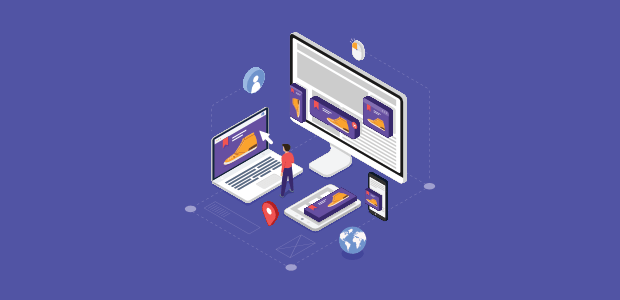
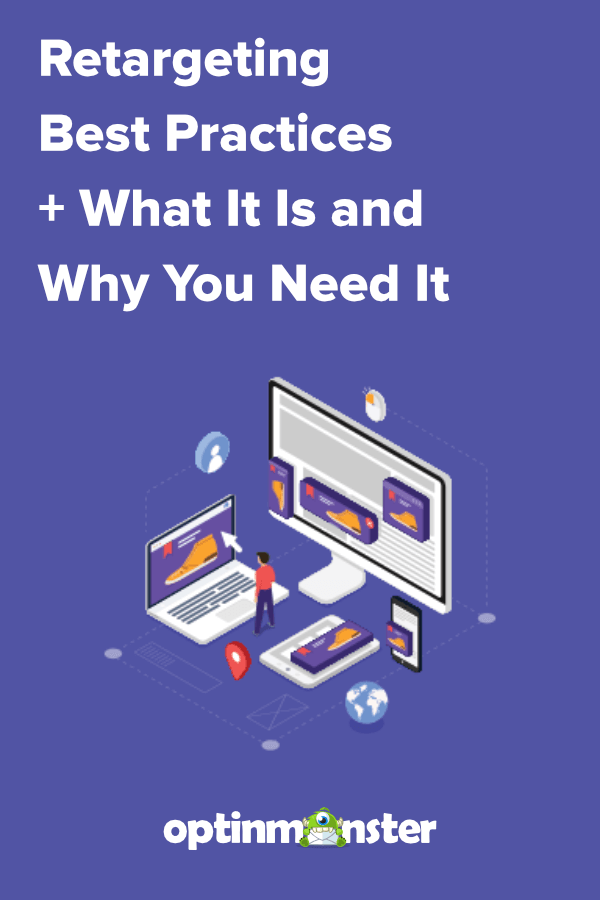
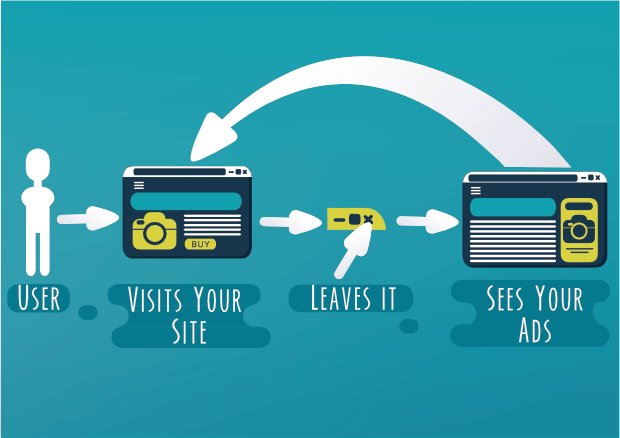

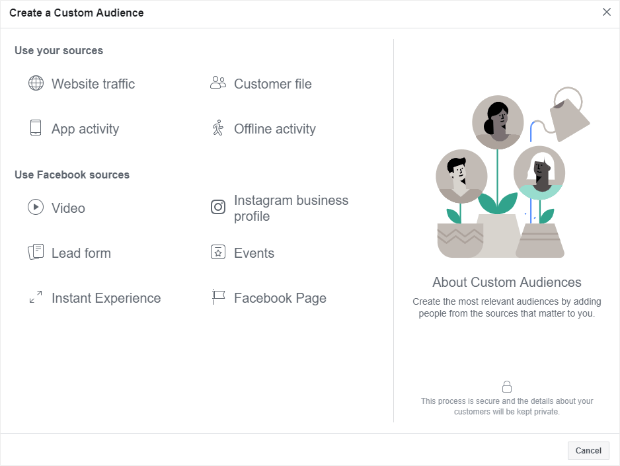
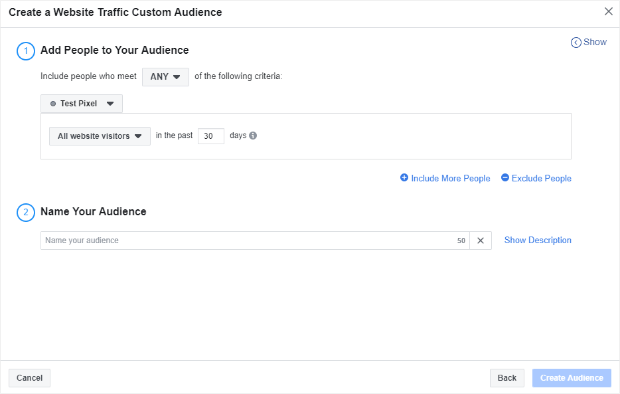
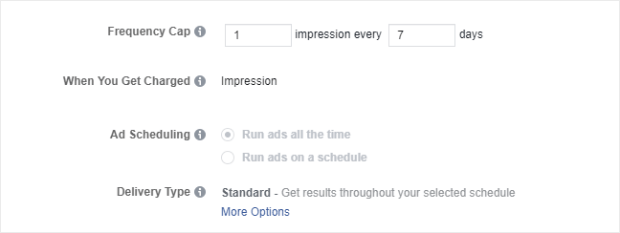
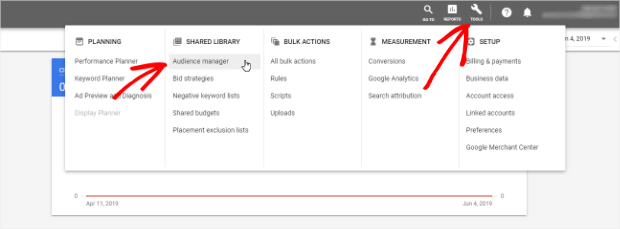
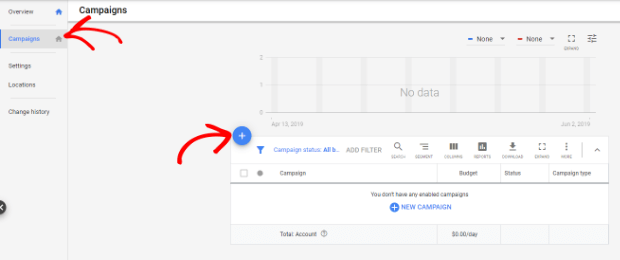


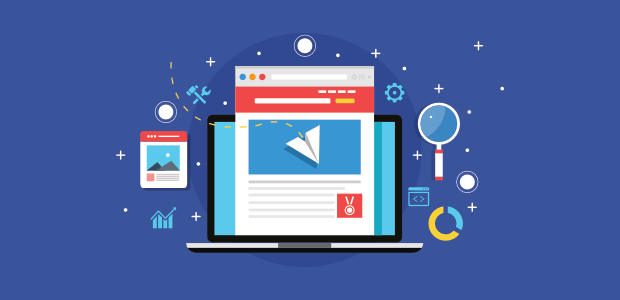
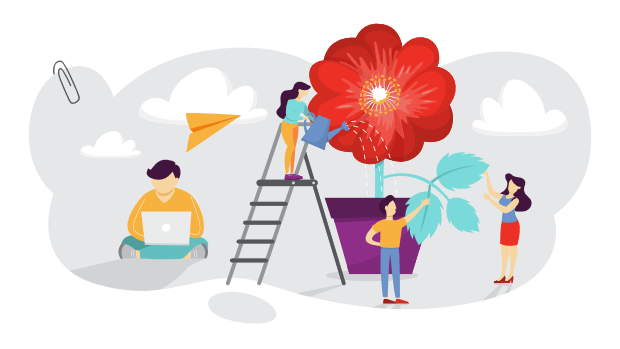

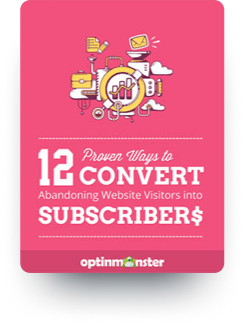


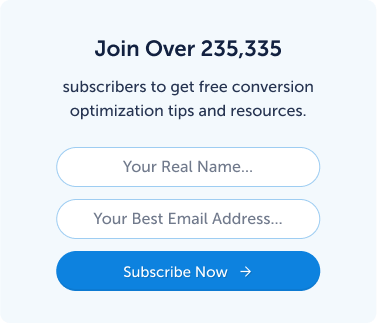



Add a Comment